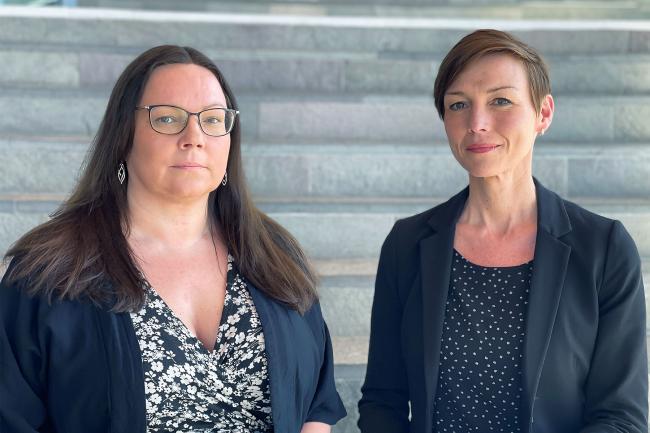New report: Respect! My body! has an effect
2025-05-26Children in lower primary school gain more knowledge about bodily integrity, boundaries and safety after working with the school programme “Respect! My body!” (Stopp! Min kropp!). These are the findings of a recent study that was conducted by researchers at Karlstad University, commissioned by Save the Children.
The school programme “Respect! My body!” has been developed by Save the Children to increase children’s understanding of bodily integrity and to prevent sexual abuse. The material is available both in printed form and as a digital game and is used in teaching.
– Our study shows that the programme strengthens children’s knowledge about emotions, their body, abuse, consent, secrets and online safety, says Evelina Landstedt, professor of social work at Karlstad University. It doesn’t make much of a difference how they choose to work with the material – what matters is that the work is actually done.
The study included pupils in years 2 and 3. The researchers compared the knowledge levels of four groups – three that worked with “Respect! My Body!” in different ways and one control group.
The results show that the children’s knowledge increased, especially among those with limited prior knowledge. The recently developed digital game showed great potential – it engaged the children and provided an opportunity to practise in a safe environment. Teachers and other school staff also felt that working with the material contributed to their professional development.
– There are few similar school programmes in Sweden, and none that have been scientifically evaluated before, says Evelina Landstedt. That’s why Save the Children commissioned us to investigate whether the teaching material – including the digital game – actually increases children’s knowledge. It’s a comprehensive scientific study that is unique in this area – both in Sweden and internationally. The results also provide guidance on how “Respect! My Body!” can be further developed, for example by creating more advanced scenarios and more in-depth training.
New tool to measure children’s knowledge
As part of the study, the researchers developed a new digital evaluation tool to measure knowledge before and after working with “Respect! My body!”. Children were part of this development process.
– Measuring knowledge is a challenge, especially among young children and in complex areas such as bodily integrity and abuse. Therefore, we developed a new scenario-based digital tool with animated videos and response options in both speech and text, making it more accessible and engaging for the children.
Schools play a crucial role
Evelina Landstedt is part of the Centre for Research on the Mental Health and Life Circumstances of Children and Youth, CBU, at Karlstad University. Her research focuses on the underlying factors of mental illness and how society can work to strengthen the mental health of children, adolescents and young adults.
– Research shows how important it is for children to gain knowledge and strategies to protect themselves. Many children are exposed to violence in various environments – by both adults and peers – without telling anyone about it. Perpetrators often use silence as a tool of control, and many children lack the knowledge or language to describe what they have experienced. That’s why more knowledge is needed about how violence against children can be prevented and how children can be equipped with the language and strategies to understand and talk about violations and abuse. It is never a child’s responsibility to protect themselves – that responsibility lies with adults and society. Children have the right to knowledge, and schools play an important role in providing that knowledge.
She emphasises that research in collaboration with civil society is crucial for creating relevant and useful knowledge.
– It’s been both meaningful and rewarding to work on this study, which involved schools, teachers, school counsellors and pupils. I would especially like to highlight the invaluable contribution of my colleague Victoria Lönnfjord and the great collaboration we’ve had with Anna Vikgren at Save the Children, says Evelina Landstedt.
The study was conducted by Evelina Landstedt and Victoria Lönnfjord, researchers in social work at Karlstad University, in collaboration with researchers from Aalborg University, Save the Children, the World Childhood Foundation and the company Ineq Solutions.
- You can find the report here (in Swedish): Utvärdering av STOPP! MIN KROPP! | Save the Children’s Resource Centre


